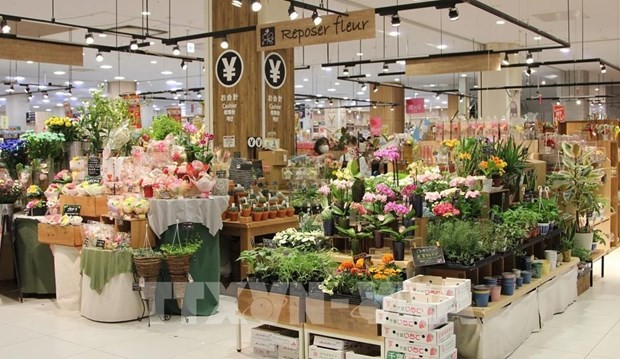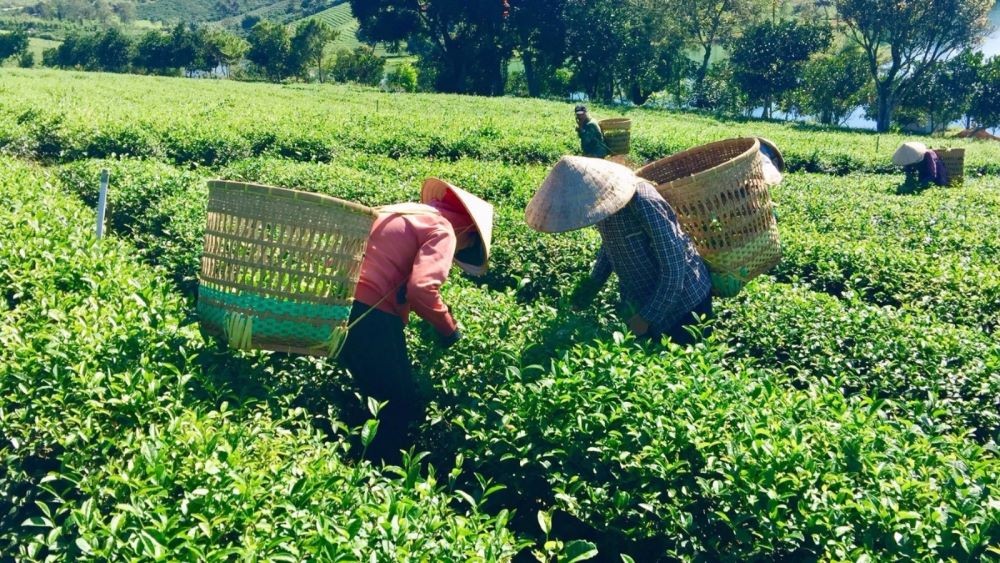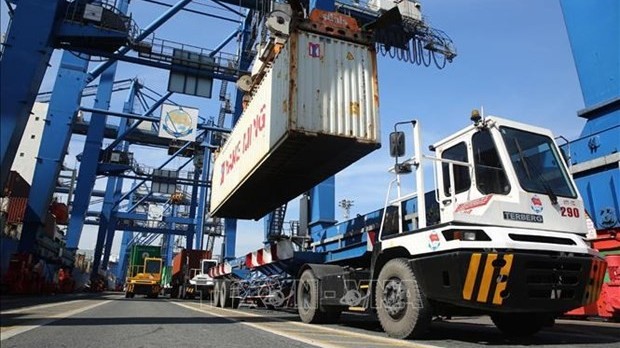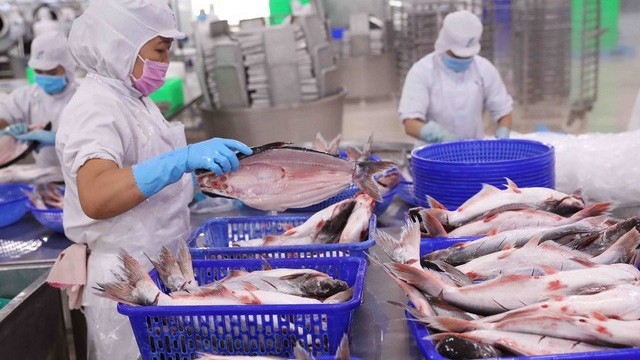
Japan-a "laissez-passer" for Vietnamese goods to global markets: official
Latest
 |
| Imported flowers for sale at the AEON Mall Makuhari supermarket in Chiba prefecture of Japan. Many of the flowers are imported from Vietnam. (Photo: VNA) |
Highlighting efforts by the Vietnamese Trade Office to connect export and import demand, he told the Vietnam News Agency that the two countries’ export structures do not directly compete but are complementary to each other. Vietnam has great demand for commodities with high technological content and added value from Japan, which in turn has high demand for agro-forestry-fishery products, processed food, textile-garments, and leather-footwear from Vietnam.
That both countries are members of many free trade agreements (FTAs) such as the Vietnam-Japan Economic Partnership Agreement, the ASEAN-Japan Comprehensive Economic Partnership, the Comprehensive and Progressive Agreement for Trans-Pacific Partnership (CPTPP), and the Regional Comprehensive Economic Partnership (RCEP), which include many strong tariff cut commitments, has created many opportunities for boosting trade cooperation.
Within the CPTPP and RCEP frameworks, Japan is a promising export market for Vietnam thanks to the close proximity, leading to low logistics costs and convenient transportation, and the optimisation of rules of origin under these FTAs, Minh said.
He recommended that to make use of advantages created by the CPTPP and the RCEP, Vietnamese enterprises should pay attention to the rules of origin to select suitable partners to increase the optimisation of preferential tariffs.
As Japan is a demanding market with many strict import standards, to ensure Vietnamese goods can gain a foothold here, the first and foremost thing is to build national brands for products. Vietnamese exporters, importers and sellers in Japan, and relevant agencies should join hands to establish Vietnamese goods as high-quality and competitive products that meet Japanese consumers’ taste, according to the Trade Counsellor.
He added in the time ahead, his office will press on with coordinating with the Vietnamese Business Association and Vietnamese-invested companies in Japan to encourage Vietnamese people there to use Vietnamese products, advertise made-in-Vietnam goods, and develop distribution channels for those products in Japan. It will focus on the commodities Vietnam is strong at and Japan has high demand for, such as apparel, agro-forestry-fishery products, food, and handicrafts.
The office will help consolidate and further expand the market for some items that have already gained a foothold in Japan such as banana, dragon fruit, coffee, cocoa, cashew nut, spices, and processed food. It will also step up trade promotion for potential commodities like textile-garment, leather-footwear, or mechanical products by participating in fairs, exhibitions, and business matching events to seek suitable partners and export opportunities, Minh noted.





















